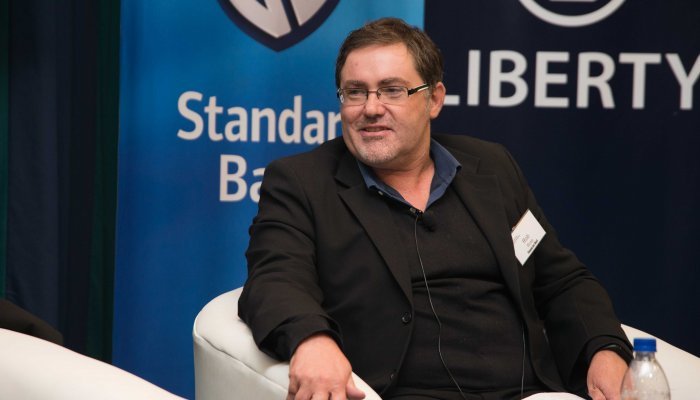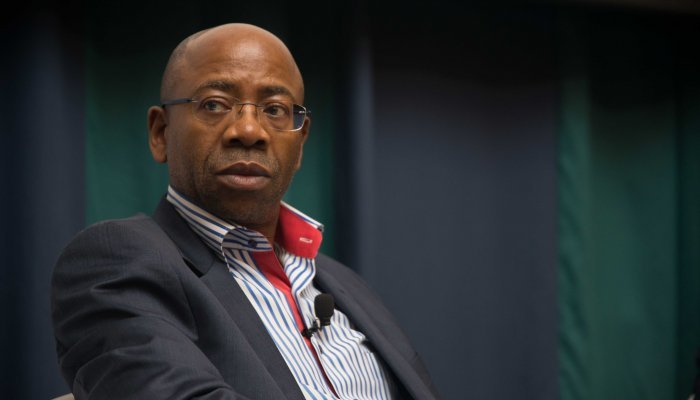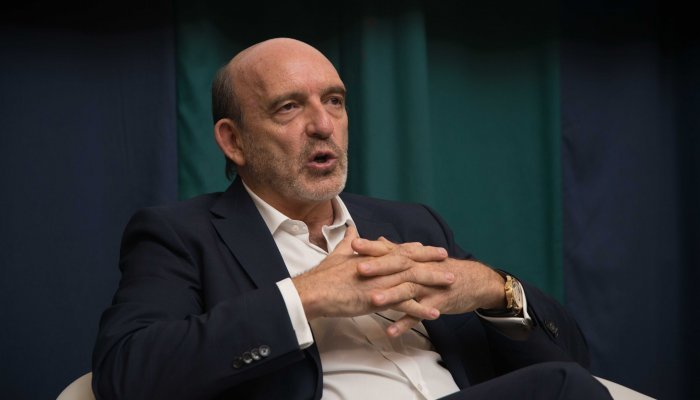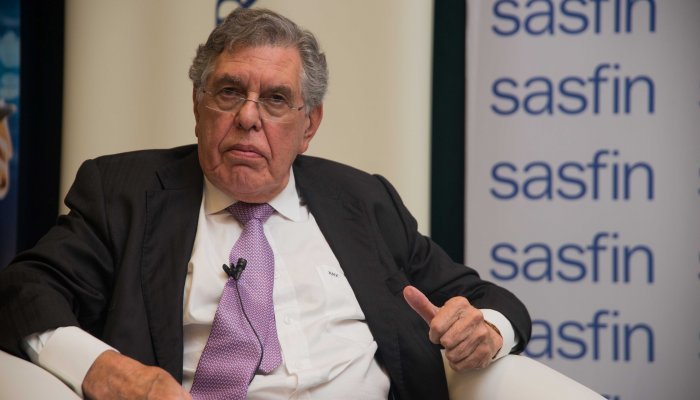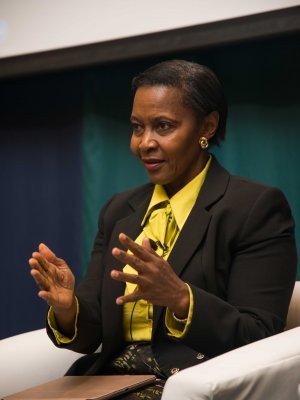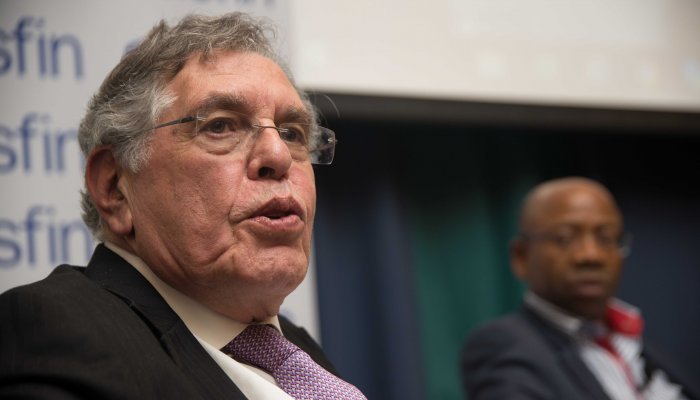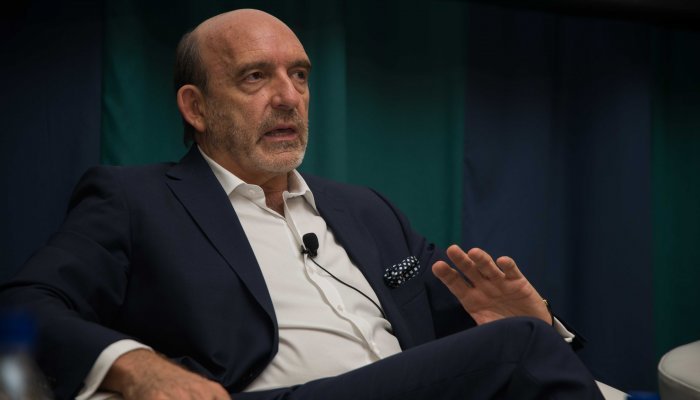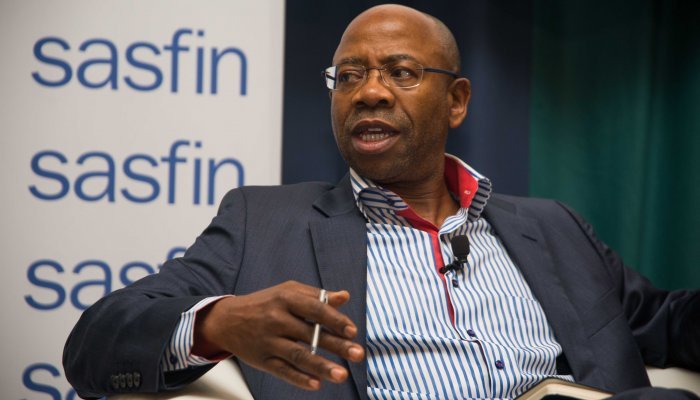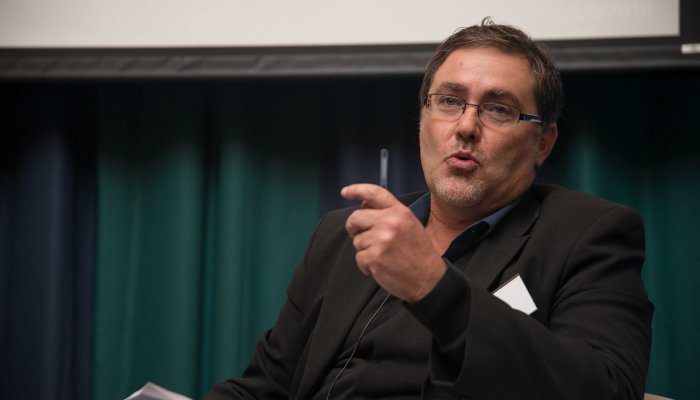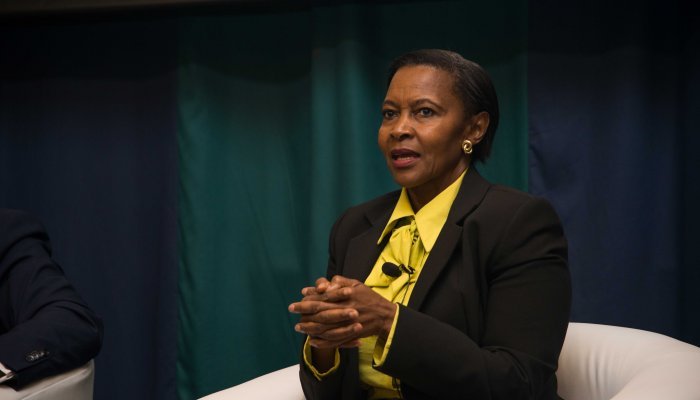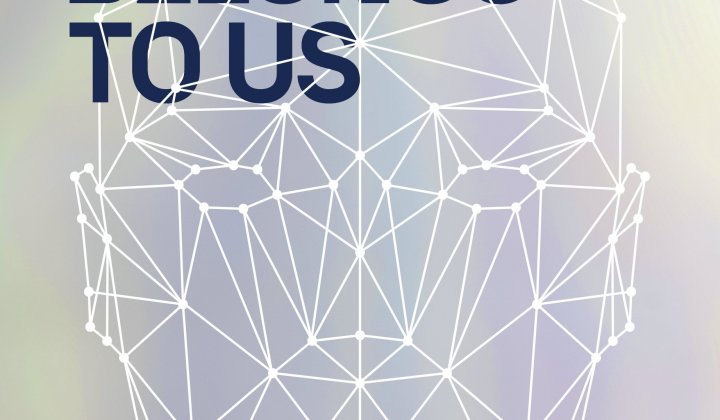According to the 2018 South African edition of PwC's Global Economic Crime and Fraud Survey, 77% of South African organisations surveyed say they have experienced economic crime in the past two years. This compares to 49% of respondents globally. These staggering figures were cited by Rabbi Gideon Pogrund, director of the GIBS Ethics and Governance Think Tank, as he opened the GIBS Forum titled, White-Collar Crime: Why They Do It, in March.
Professor Eugene Soltes, Harvard Business School academic and author of the highly acclaimed book Why They Do It, kicked off the forum via video link by sharing how he’d first become interested in the idea of what motivates white-collar criminals. It was an idea that came to him while watching the US prison documentary Lockup 11 years ago.
...the victims of corporate crime tend to be far removed...
“They were interviewing people convicted of crimes and this was at the time of Bernie Madoff and Enron,” he says. He started to wonder about how the motivations for perpetrating white-collar crime might differ from those of people committing “street crimes”. The question led him to interview over four dozen offenders across the world over the next few years.
“As a financial economist, I started out thinking that white-collar crime occurs because of some sort of calculation going on,” he says. “I began to think that perhaps there’s nothing abnormal about the individuals perpetrating these crimes except that they view the costs and benefits differently.”
However, a year or two into his research, he became frustrated with this approach. He came to believe that white-collar crime was less of a calculated occurrence than what he terms a “failure of intuition” and a lack of ability to realise the harm of these actions. His new question became, “Why can we see that what they did was wrong, but these (often very smart people) couldn’t?”
He points out that the victims of corporate crime tend to be far removed, which is very different from many other crimes (for example, violent crimes). “With things like insider trading, it’s hard to even identify a victim – it’s the market that suffers,” he says.
Soltes believes that people perpetrating white-collar crime also don’t necessarily see what they are doing as wrong. They don’t think of themselves as criminals, and often think the end justifies the means and rationalise what they do. He says we all do this at some level – doing things we know we ought not to do, but that we do anyway and rationalise.
Speeding is a perfect example. As long as we don’t believe that our action is harmful, we will continue to do it, even if it’s against the rules. “At the same time, if we feel something is harmful, we don’t even consider doing it, even if there’s no law against it,” he says. The question is how we create cultures, norms and compliance systems that nudge people towards being the best versions of themselves.
Leaders
Bonang Mohale, CEO of Business Leadership SA, points out that the people whose economic crimes wreak the biggest havoc tend to be those in leadership positions. Power, he says, can either be used judiciously for the greater good, or for purely self-serving purposes. He, therefore, views white-collar crime as a failure of leadership.
The key challenge facing boards is how to enable decision-making that not only supports company objectives, but fuels shared value. If business were to become obsessed with the idea of shared value, Mohale muses, it would naturally begin to use its might for the greater good.
Mark Lamberti, Group CEO, Imperial Holdings, suggests there are three reasons behind white-collar crime: poor process, short-termism and poor custodianship.
On short-termism, he says that instead of focusing on long-term value creation, companies focus on ensuring the bottom line delivers, at all costs, often bending the rules to achieve results. Citing his personal management credo, written in 1978, he says the test for ensuring a long-term perspective should be asking how any decision will look “to a disinterested corporate historian of the very highest integrity, common sense and humanity 5, 10 or 15 years from now.”
South Africa tends to focus more on public sector crimes...
On poor custodianship, he calls out management arrogance and reinforces that unless one owns 100% of a company, one is merely a custodian and cannot behave as though the company is one’s own. Reading from a 2004 Massmart annual report, he highlights the importance of improving disclosure, “however uncomfortable this may be in times of underperformance”:
“I would like to suggest that a failure to face up to the reality of underperformance is at the heart of dishonest investor relations and the ultimate cause of corporate malfeasance. As directors, we are in trouble when we start to craft the message to embellish the good news or to hide the bad news. We are in serious trouble when our decisions are shaped by a desire to influence the share price. We must recognise that our companies cannot perform impeccably indefinitely. We must recognise that public shareholders will exploit performance lapses in the short term. And we must recognise that a decline in the share price is not necessarily a failure. As directors, we are not salesmen of the company’s shares and we are not appointed to meet analyst’s consensus forecasts.”
Advocate Kgomotso Moroka, SC, notes that South Africa tends to focus more on public sector crimes than private sector misconduct and stresses the need for balance between legislation against criminal activity and an ethical culture. Without the latter, the former is ineffectual. She points out that King IV has moved from tick-box compliance methodologies towards a more outcomes-based approach.
Rob Rose, Editor of the Financial Mail, pointed out that private sector economic crimes are reported on, and that the market extracts quite a high levy from companies that misbehave – for example, in the recent case of Steinhoff. He agrees with Prof. Soltes that cognitive dissonance is a factor in white-collar crime, and that corporate criminals often don’t have a sense of the harm they are causing.
Rose refers to a 2008 paper by the SEC that divided white-collar criminals into various classes. The first comprises the obvious crooks who are out to get away with whatever they can. The second is the “borrower” – a criminal who actually believes that he will replace what he has taken at some point. Ponzi scheme criminals often fall into this category. Then there are the opportunists, and finally, the crowd-followers. These are often people who get sucked in to crimes that are legitimised within communities in which they happen, even if they are technically illegal. Examples include cartels, insider trading and currency rigging. If there’s a feeling that “everyone else is doing it” the behaviour is easy to rationalise.
Professor Michael Katz, Chairman of ENS and one of South Africa’s most eminent lawyers, believes that a particular “toxic mix” makes for an environment where white-collar crime can run rife: “A strong, arrogant CEO, non-executive directors who don’t understand the business and who are captive to the money, and an absence of a culture of healthy dissent.”
Society has to start to see white-collar crime as a crime...
He believes that a large part of the problem is that the people who commit white-collar crimes don’t believe that they will be held to account and don’t see themselves as criminals. Thus, even if deterrents are escalated (e.g. increased jail sentences), it doesn’t have the effect of decreasing corporate crime. The challenge is in finding ways to lower the disconnect.
“It’s an important point in Prof. Eugene Soltes’ book,” Prof. Katz says. “Society has to start to see white-collar crime as a crime. It needs to see that these things are wrong and harmful – they do not happen in a vacuum.”


